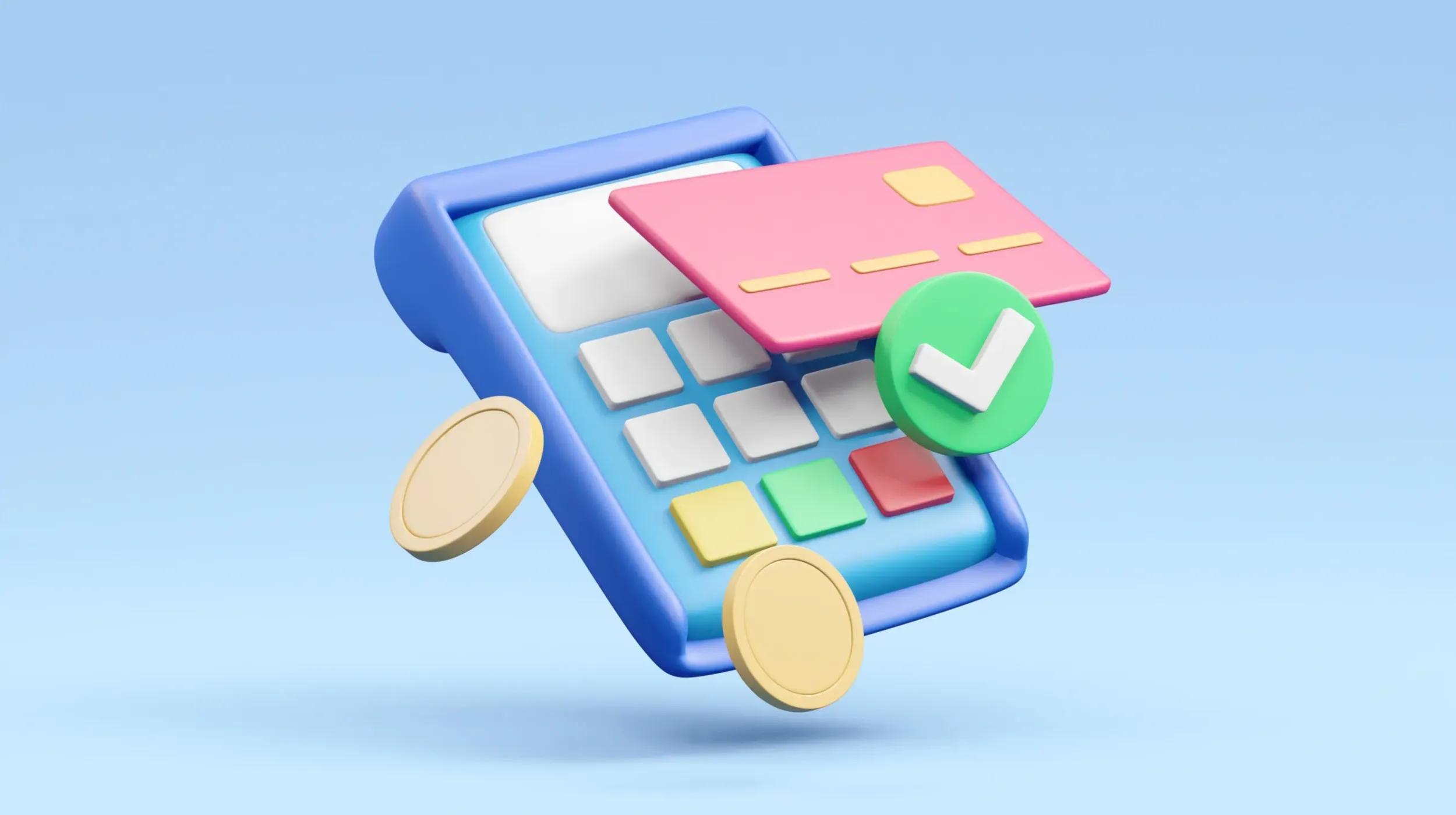Applying for a small business grant is not for the faint of heart. But worry not. We’re here to help you navigate your way through the grant application process.
This article will equip you with general knowledge about grants – the pros and cons, the types of available grants, where to search for grants – and provide you with a checklist for the entire grant process and a grant tracking spreadsheet to stay on top of your applications.
Hopefully, this guide will help demystify the process.
With that said, if you decide to move forward with pursuing a grant, it is strongly encouraged that you seek out help from a local small business resource center, such as your nearest SBDC (Small Business Development Center) or your local Chamber of Commerce. We’ll discuss that as well in this guide.
Now let’s jump into the nitty-gritty.
Editor's Note: Feel free to go ahead and make a copy of our grant application checklist and grant tracking spreadsheet before diving into our guide.
Disclaimer: This content should not be construed as legal or financial advice. Always consult an attorney or financial advisor regarding your specific legal or financial situation.

Go from idea to online in minutes with GoDaddy Airo™
Get started now.
The grant lifecycle
Grants.gov brings together federal awarding agencies and applicants, helping to streamline the grant process. The grant process follows a linear lifecycle that includes creating the funding opportunity, applying, making award decisions, and successfully implementing the award.
The specific actions along the lifecycle are grouped into three main phases: pre-award phase, award phase, and post-award phase. Each of these phases has its own detailed process to guide you through the grant application and management.
Pre-award phase
The pre-award phase involves identifying funding opportunities and reviewing application requirements. During this phase, applicants create funding opportunities and prepare their grant applications to meet the specific criteria set by the grant-making agencies.
It is crucial to thoroughly understand the eligibility criteria and ensure that your business aligns with the grant’s objectives before applying.
Award phase
The award phase is where grant applications are evaluated and award decisions are made. Federal awarding agencies review the submitted applications, assess their compliance with the grant requirements, and select the recipients.
Notifications are then sent out to successful applicants, outlining the terms and conditions of the grant.
Post-award phase
The post-award phase focuses on the implementation of the grant and the reporting requirements. Grant recipients must effectively manage the awarded funds, adhere to the project timelines, and comply with all reporting obligations.
This includes submitting progress reports, financial statements, and other documentation as required by the grantor. Successful management during this phase ensures continued compliance and the possibility of future funding opportunities.
The advantages and disadvantages of grants
Starting a business comes with a lot of expenses, so the opportunity to get funding that you do not have to pay back might seem too good to pass up. Grants have their definite advantages. However, they also have certain drawbacks that you should consider before pursuing a grant for your startup or small business.
Pros
- “Free” funding: Grants provide money that does not need to be repaid, offering a significant financial advantage compared to loans. They are not completely “free,” as you will dedicate time to applying for the grant and later to required reporting, but any money you receive won’t affect your cash flow through repayments.
- No equity or ownership loss: Unlike equity investments, grants do not require giving up ownership or a share of your business to someone else.
- Support for specific projects: Grants often target specific projects or initiatives, such as research, development, or social impact, helping businesses accomplish goals that align with these initiatives.
Cons
- Highly competitive: Grants are usually highly competitive, with many applicants vying for limited funds. As such, securing a grant can be challenging.
- Stringent eligibility criteria: Grants typically come with strict eligibility requirements, which may exclude many businesses or projects.
- Limited use: Grants are typically designated for specific purposes, making them unsuitable for general operating expenses, day-to-day costs, or broad business growth activities.
- Complex application process: The application process for grants can be time-consuming and requires detailed proposals and documentation.
Please note that grants are generally considered taxable income unless specified otherwise by law.
Types of grants: Where to find and apply for them

Grants can come from the government, local organizations, or corporations. The types of grants that small businesses can qualify for depend largely on specific requirements.
For example, some grant funding may only be available to businesses owned by women, veterans, Black individuals, LGBTQ individuals, etc.
Additionally, grants might be designated for specific industries, such as agriculture, technology, or research and development. Grants may also come with reporting or training requirements that can be stringent, depending on the nature of the grant, the industry, and the granting entity.
Let’s explore some of the most common sources of small business grants.
State and local grants
Starting with state agencies and local resources is the first step you should take when seeking a grant. Small business centers in your area and local chambers of commerce can connect you with local grant opportunities and provide guidance for federal and corporate grants. These local and community groups aim to see local businesses thrive, making them best equipped to help you find city-specific or community-specific grants or very low- or no-interest loans.
Resources for local and state grants
- America’s SBDC (Small Business Development Centers): Here you can find local SBA Resource Partners that can help you with grants, loans, mentoring in entrepreneurship, and anything else related to helping small businesses succeed.
Tip: On the results page, look for listings labeled “SBA Resource Partners” instead of district offices, as local offices often have more community-specific information and grants on their websites.
- Council on Foundations: Discover community foundations connected to grants and assistance programs in every state.
Federal government grants
According to Grants.gov, federal grants are “a way the government funds your ideas and projects to provide public services and stimulate the economy.”
Since funds from federal small business grants must be directed toward specific programs, you cannot apply for grants to cover everyday costs or general business growth expenses. Per USA.gov, organizations that can qualify for government grants include:
- State and local governments
- Universities
- Research labs
- Law enforcement
- Non-profit organizations
- Businesses.
Resources for federal government grants
- Grants.gov: Provides resources on how to write grants and allows you to search for government grants. Grants.gov compiles all government grants in one place, – including popular ones, like the SBIR and STTR programs or USDA grants for development in rural areas.
- USA.gov: Offers general advice on obtaining government grants and guidance on avoiding scams from fraudulent entities posing as the government.
- US Department of Treasury: The Treasury Department provides various forms of financial assistance, including grants.
- To further enhance your search for grant opportunities, consider utilizing additional resources such as GrantWatch and the U.S. Chamber of Commerce’s grant lists. These platforms offer comprehensive listings and detailed information on various grant opportunities tailored to different business needs.
Non-government and corporate grants
If none of the grants from government agencies apply to you, there are also options available from private sources. These grants come from nonprofit organizations, private individuals, and for-profit companies, and typically award funds to companies engaged in the causes they support.
These private funders use grants to encourage action, such as community development, establishing environmentally friendly businesses, and creating jobs in specific industries.
Just like government grants, finding applicable corporate grants can be a time-consuming process, as there are hundreds of such grants available.
Once again, local small business resource centers will be the best place to start, as they should be aware of local corporate grants and can help you with identifying which corporate grants and other funding opportunities might apply to your new business.
Corporate grant opportunities
The groups listed below are only a few of the well-known small business grant opportunities from established corporations. There are numerous other corporate grants available each year, so connecting with your local chamber of commerce or small business resource center can help identify corporate grants that are a good fit for your small business.
- Visa Everywhere Initiative
- FedEx Small Business Grant Content
- Patagonia Corporate Grant Program
- Verizon Small Business Digital Ready
Other Non-Government Grant Opportunities
Grant application checklist

There is no one-size-fits-all application process. They vary widely depending upon the grant and who offers it.
Be prepared to provide details about your business (such as a strong business plan), personal information and why you are applying for funds. You will likely also need to demonstrate that you fit into the category of business the grant is designed to help.
For example, to win a startup grant for a minority-owned business, you may need to provide proof of social or economic disadvantage and a statement of personal history.
Grants coming from private sources may seem even more idiosyncratic; be prepared to answer a lot of questions about you and your business when applying.
There is nothing easy about completing an application for a grant, so if you’re looking for what’s sometimes billed as easy money, you will need to rethink your approach.
The below checklist can help you through the typical application process associated with most small business grant programs. While the details will vary based on the specific grant you want to apply for, this checklist provides a general idea of what you will need to do.
The below checklist also comes in an interactive version, so feel free to make a copy of the checklist and use it for yourself.
Checklist for grant applications
✔ Understand the grant lifecycle: Take the time to learn about the entire grant process – from searching for grants to managing and reporting on funding. This first step is crucial as it helps you fully understand the complexity of the process and determine if the amount of funding is truly worth your time as a small business owner.
✔ Develop an internal strategy: Create a plan that outlines your objectives, assigns roles to team members, and establishes a clear workflow for the grant application process to ensure efficiency and accountability.
✔ Set deadlines: Establish internal deadlines for each section of the grant application to ensure timely completion and submission, preventing last-minute rushes that can compromise the quality of your application.
✔ Have colleagues review and edit: Engage your team members to review your grant application for accuracy, clarity, and completeness. Using clear and accessible language is crucial to ensure that reviewers can easily understand and evaluate your application. Multiple perspectives can help identify areas for improvement and ensure that the application meets all requirements.
✔ Evaluate your eligibility: Review available grants and identify ones your business might be eligible for. Look for grant opportunities that align with your business needs, objectives, and projects. Explore government, corporate, and local foundation grants. Consider working with your SBDC or another local group for assistance in identifying potential grants.
✔ Learn about reporting requirements: All grants have reporting requirements, which might include progress reports, financial audits, and site visits. Assess whether you can keep up with these stringent requirements to maintain funding. Ensure you understand all requirements and are willing to comply.
✔ Confirm eligibility for the selected grant: Verify that your organization meets all the eligibility requirements specified in the grant’s guidelines. There can be several required areas (such as geographic and financial), so ensure that your work fulfills each one.
✔ Register with the relevant platforms: There are many different platforms, such Grants.gov, where you can register and apply for grants. The platform depends on the type of grant – federal, local, or corporate – that you want to apply for. Having an account on the appropriate platform is typically a required part of the application process.
✔ Consider getting professional guidance: Whether you decide to hire a grant writer or seek free counseling from your local SBDC, it can be well worth the time and investment to have someone with expertise help with your grant application.
✔ Look at prior winners: Most grants will list winners from previous years. Review the list to identify patterns in the types of businesses being selected. Determine if your business is a similar fit, and if not, consider whether the grant is a feasible option for your startup.
✔ Prepare and submit your grant applications: Ensure your grant application includes a well-crafted proposal, budgets, supporting documents, and any required forms. Follow the specific submission instructions for the chosen grant opportunity. If you hired a grant writer or are being mentored by a local group, rely on these resources to assist you in this process.
✔ Review and revise: Before submitting, thoroughly review your grant application to ensure it meets all requirements and makes a compelling case for funding. Revise as needed. Avoid skipping this step, as any overlooked errors or omissions can undermine your efforts.
✔ Submit your application: Complete the submission process according to the grant’s guidelines and deadlines, including submitting electronically or via postal mail.
✔ Track your application: Keep records of submitted applications and deadlines. Implement a system for tracking the status and outcomes of each application. You can use our simple grant tracking spreadsheet and customize it for your own purposes.
✔ Prepare for post-award management: Anticipate receiving a grant by establishing a plan for effective post-award management, including compliance with reporting, financial management, and project execution.
Next steps and alternative funding options
If you are successful in securing your small business grant — congratulations! Even though applying for a grant can be challenging and time-consuming, one of the benefits of receiving a grant is that it does not need to be repaid, making it a true boon to the cash flow and annual revenue of a small business.
However, grant recipients are required to provide all requested documentation — including data and research findings — identifying how they used the grant money and the subsequent results or impact to their objectives.
While you might not be required to make any repayments, you will be paying for the grant in the time and energy needed to capture and report information back to the organization that provided it.
If you can’t find a grant that aligns with your business and its needs (or you’ve decided that a grant and all that it entails is just not for you), consider some other sources of funding for your startup:
- Government contracts: You may not qualify for a government grant, but earning a government contract can provide your business with significant financial opportunities. By law, the US government is required to consider buying from small businesses. To understand the process better, check out the SBA’s government contracting guide.
- Small business loans:* Traditional banks and credit unions, online lenders, and the Small Business Administration (SBA) offer loan opportunities and business financing for entrepreneurs and small businesses. Shop around for competitive interest rates and terms. We’ve got a guide for getting a small business loan that can help you understand the process.
- Crowdfunding: Platforms like Kickstarter and Indiegogo allow businesses to raise funds from a large number of people who contribute money in exchange for products, rewards, or equity.
- Business credit cards: Business credit cards can provide short-term financing for expenses. They often offer rewards and benefits for business spending. Just be mindful of how you use the card to avoid negatively impacting your credit score.
Final thoughts on getting a small business startup grant

When you’re running a small business or trying to establish your startup, the thought of “free money” sounds great. However, it is important to remember that the grant process is challenging and could take several months to complete. If your business is in an industry that is eligible for a grant, or your mission is supported by a group offering funding, a grant may be a source of capital for your business.
You’ll need to do your homework to make sure your business qualifies and have the patience to wade through the application process (and post-grant reporting requirements), but depending on your situation, it could be worth it.
For your convenience, here’s a recap of the resources provided in this article:
State and local resources:
Federal resources:
Non-government grant opportunities:







